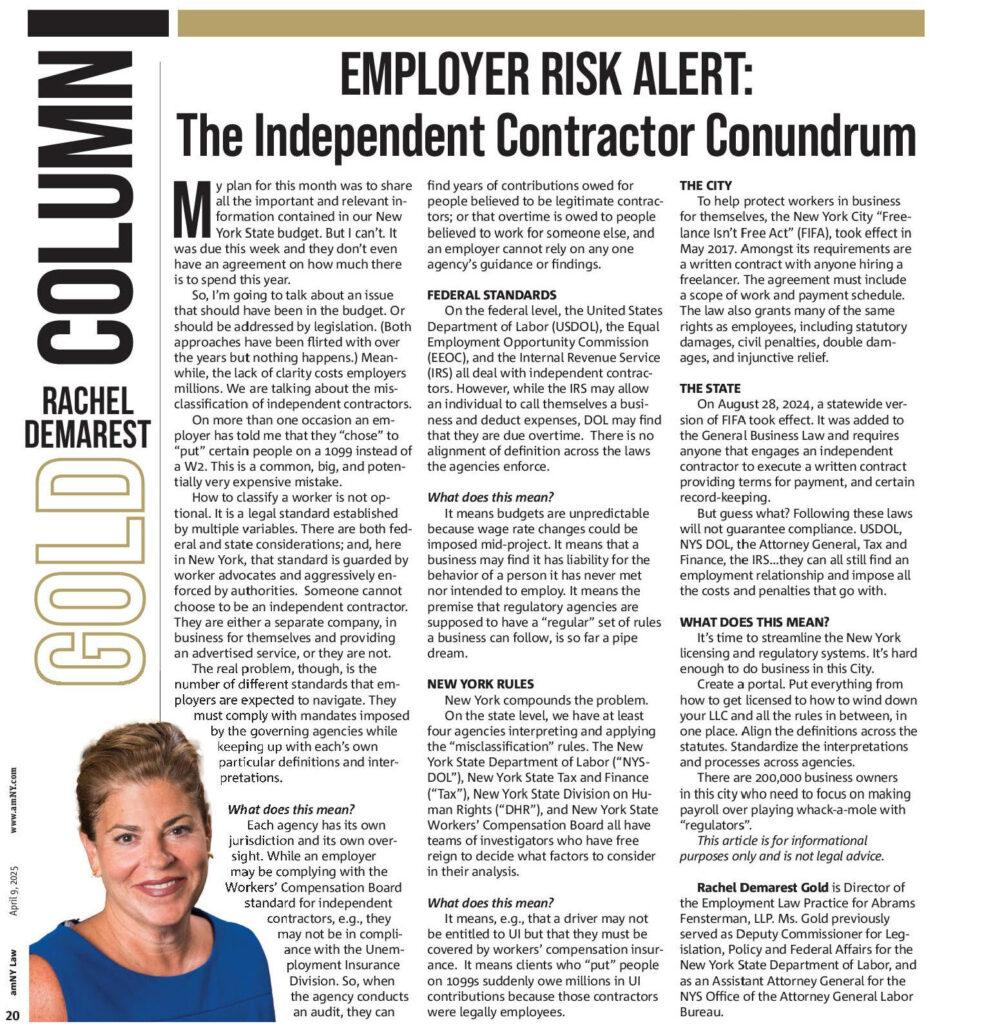Two recent developments in New York State law could dramatically affect all of us. . . both in very positive ways. First, under the newly passed Family Health Care Decisions Act, you may now have a healthcare agent, even without having executed a formal healthcare proxy. Second, through the haze of uncertainty in the current estate tax law, New York has shined a beacon of light to clarify an important estate planning tool. Both developments are addressed below.
New Health Care Proxy Law
New York now has a default provision for the appointment of a healthcare agent. The change to existing law does not supersede or invalidate the selection of a healthcare agent under an existing, or a subsequently executed, healthcare proxy. Rather, the law gives family members, and others who are close to the patient, the legal authority to make medical decisions concerning the patient’s medical treatment when the patient is incapacitated AND has not previously appointed his or her own healthcare agent. For anyone who has not signed a healthcare proxy, the following persons are permissible healthcare agents, in order of priority: spouse, domestic partner, child 18 years of age or older, parent, sibling 18 years of age or older, or a close friend.
The new law also includes numerous safeguards to ensure that all health care decisions and medical treatment are consistent with the patient’s wishes and are in the patient’s best interest.
While we feel that the new law does add a necessary safeguard to protect those who have not engaged in thoughtful planning, there is no reason to rely on the default law. You should consult with us to have a healthcare proxy prepared for you if you have not already done so, or if you would like to execute a new health care proxy.
New Opportunity to Reduce N.Y.S. Estate Tax
You may be aware that 2010 has brought with it the repeal of the Federal estate tax. But before you celebrate, we caution you that the repeal is not permanent, but merely a one-year hiatus. Under current tax law, the Federal estate tax is set to return in 2011. Unfortunately, instead of being new and improved, it will be old and outdated! This is because it will be reconstituted under the law that was in effect in 1998.
There has been much speculation and conjecture as to what Congress and the President may do before 2011 rolls in. You may have heard rumors about the reinstatement of the Federal estate tax during 2010. . . and even worse, the possibility of its retroactivity to January 1, 2010. While we can all speculate about all of the scuttlebutt out of Washington, one thing is for sure: New York State still has an estate tax in effect for 2010!
A major concern for estate planners is how to deal with this dichotomy between the Federal and New York State estate tax laws. The problem is that the New York State estate tax is based on the Federal estate tax. Since the largest estate tax safety net for married couples is the marital deduction, how does one plan for a marital deduction at the state level when there is no concurrent marital deduction at the Federal level?
On March 16, 2010, New Yorkers received at least a temporary solution. The New York State Department of Taxation and Finance announced that it will permit a New York State only QTIP marital deduction election. Essentially, even if a Federal estate tax return is not required to be filed because either: (i) a decedent died in 2010 when the Federal estate tax was repealed, or (ii) even if reinstated, the value of the estate is under the requirement for filing a Federal estate tax return (for instance, under $3.5 million under prior law), an executor is permitted to file a proforma Federal estate tax return along with the New York State estate tax return in order to elect a state only QTIP marital deduction. The new law will provide great flexibility for those of you who have Wills that incorporate a Marital Trust for the surviving spouse – a so-called “QTIP Marital Trust”. While there is still much conjecture about the status of the estate tax, utilizing a QTIP Marital Trust in your Will may yield the most options.
* * * * * * * * * * * * * * * * * * * * * * * *
If you would like to discuss any of the issues addressed in this Article or would like more information about our Firm’s Estate Planning, Asset Protection, and Estate Administration Practice, please contact Abrams Fensterman at (516) 328-2300.





